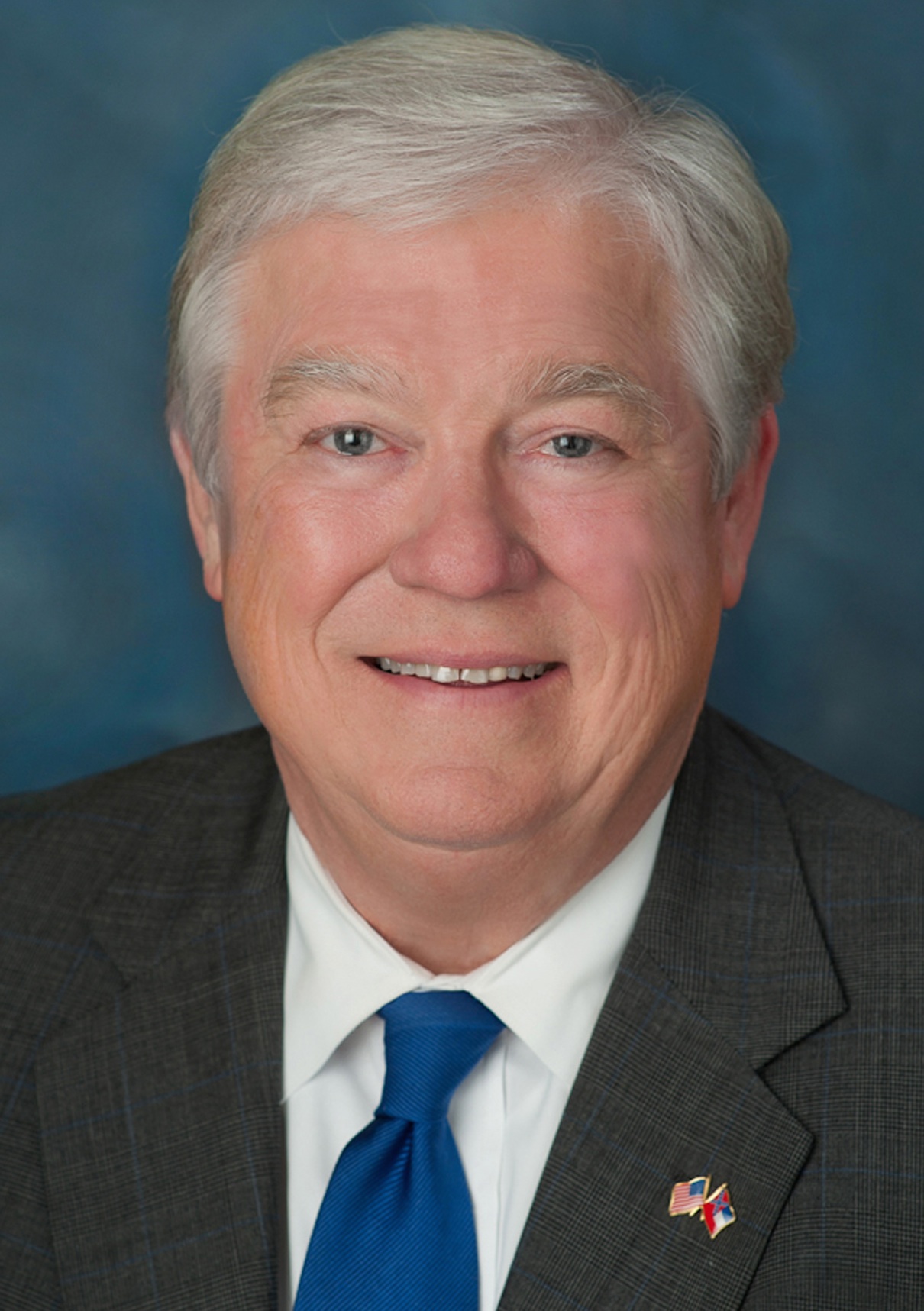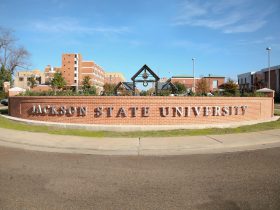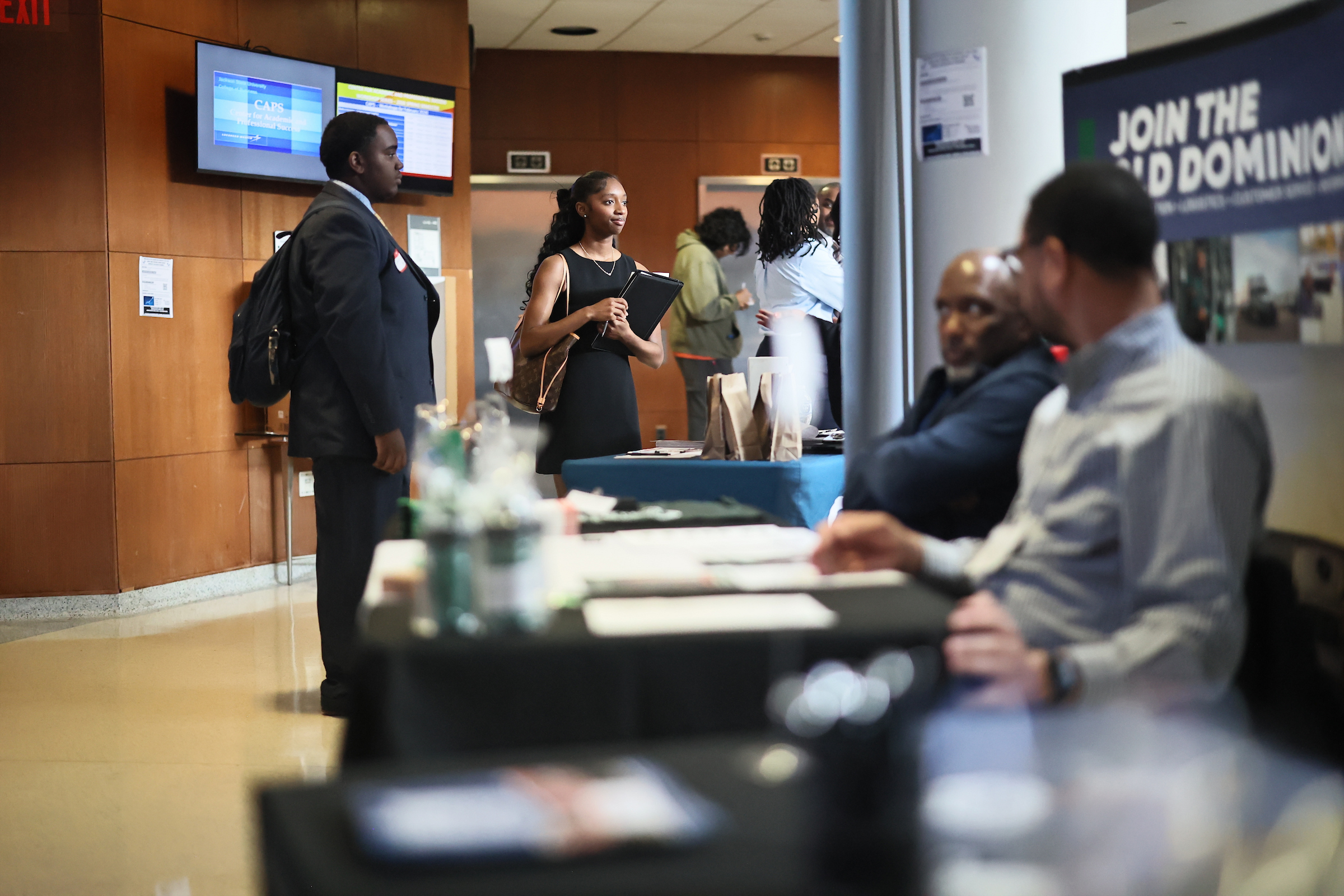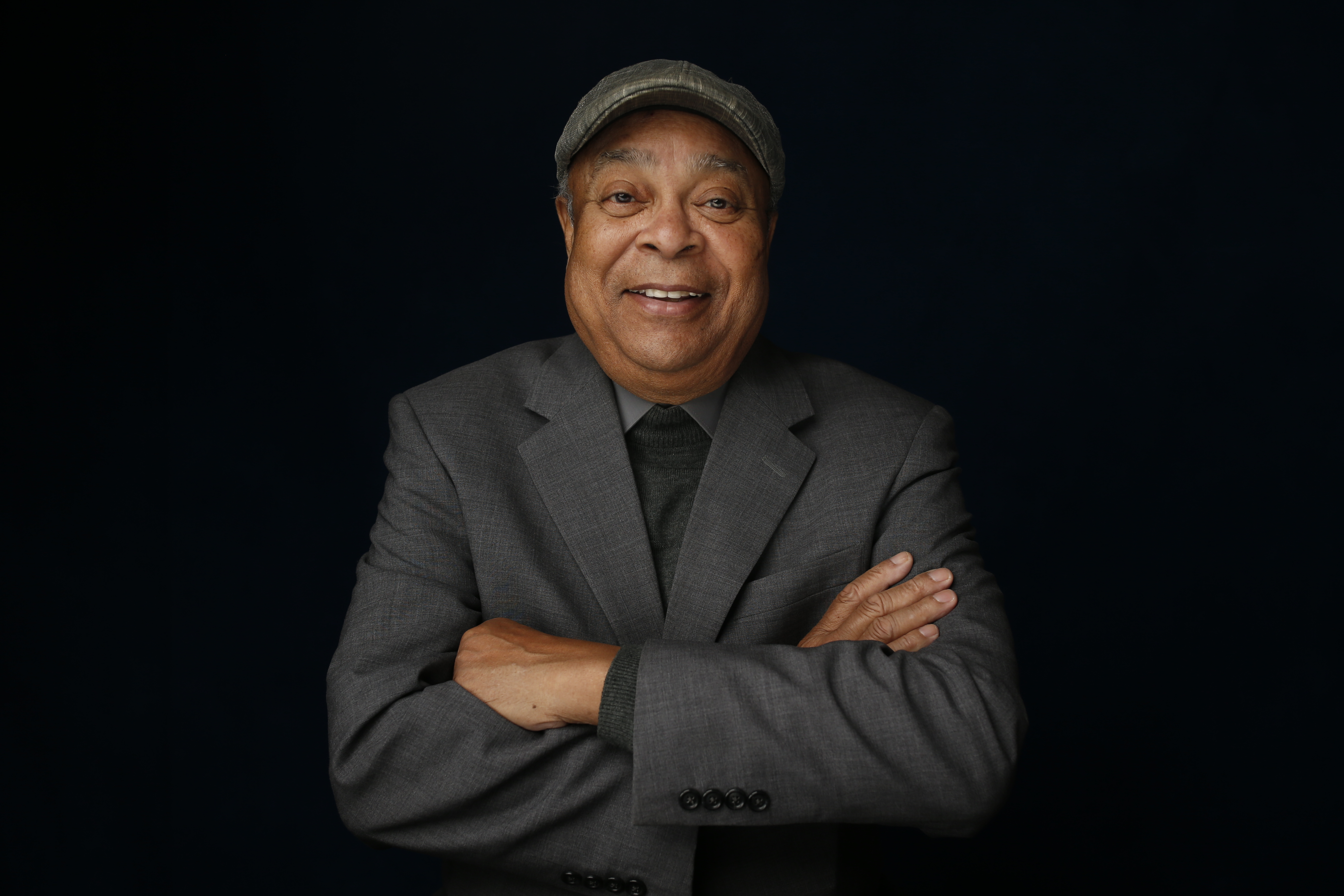(Click here to watch Live – https://static.viewer.dacast.com/b/6376/c/55158 )
Former Mississippi Gov. Haley Barbour is the featured speaker for Jackson State University’s Mike Espy Scholars-in-Residence Series symposium on Feb. 12.
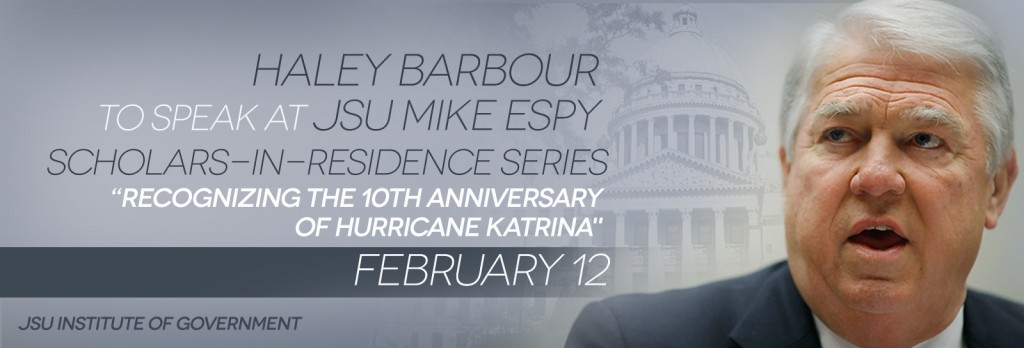
Barbour will speak on “Recognizing the 10th Anniversary of Hurricane Katrina,” according to Dr. Otha Burton, executive director of JSU’s Institute of Government, which sponsors the series.
This free event, open to the public, will be held at 5:30 p.m. at JSU’s Mississippi e-Center at 1230 Raymond Road in Jackson.
“We certainly are pleased to have someone of Haley Barbour’s political stature to speak in our Espy Series. If anyone can speak to the political, or partisan, forces regarding federal response to Katrina, Barbour certainly is an expert,” Burton said.
The subject of natural disaster preparedness should be well covered, as Barbour will be joined by a distinguished panel including: WAPT reporter Bert Case, who has covered hurricanes as a newsman since Camille hit the Mississippi Gulf Coast in 1969; Robert Latham, Jr., executive director, Mississippi Emergency Management Agency; Ricky Moore, director, Hinds County Emergency Management Agency; Lindsey Horton, JSU assistant vice president of public safety; Carol Burger, president and CEO of the United Way of the Capital Area. Former U.S. Secretary of Agriculture Mike Espy will introduce the speaker.
The panel will comment or raise questions on any point of Barbour’s presentation, Burton said.
Barbour was only in the second year as governor when the brunt of the Aug. 29, 2005 storm hit Mississippi, carving a path of destruction from the Gulf Coast through the center of the state — pushing hurricane force winds 200 miles inland and spawned deadly tornadoes statewide.
All but a handful of Mississippi’s 82 counties were declared federal disaster areas. Some residents were totally cut off from the outside, with mountains of debris blocking roads and highways, with no food, water or electricity for more than a week.
While more populous (and easier for news crews to get to) New Orleans grabbed the spotlight with flooding of the urban 9th Ward, Barbour earned international attention by saying that Mississippi didn’t have time to sit around and mope: “You just hitch up your britches and do what you gotta do.”
Barbour — a former Republican National Committee chairman and the GOP’s top K-street lobbyist — went to work doing what he knew best: negotiating politics and politicians. Not only had Congress never faced a national disaster like Katrina in modern history, in sheer size or cost, but it had no legal or financial mechanisms for responding to such a challenge.
But, with the assistance of then-Senate Appropriations Committee Chairman Thad Cochran, R-Miss., and others, federal officials created a special block grant program and a new financial recovery plan for the private sector called GOZone or the Gulf Opportunity Zone Act.
As a result, Barbour received national recognition for his leadership including “Governor of the Year for 2006” by Governing magazine; the Gulf Guardian Award by the U.S. Environmental Protection Agency for his work to rebuild and protect sensitive coastal ecosystems; the 2008 Adam Smith Medal from BIPAC for his pursuit of the principles of free enterprise; and the American Legislative Exchange Council’s Thomas Jefferson Freedom Award.
He also handily won a second term as governor.
“I think, from a public policy standpoint, one of the main questions he might address is, if Katrina happened today, could we expect the same level of federal support?” Burton said. “You may recall that when Superstorm Sandy hit the Northeast, there was considerably less initial interest in providing support.”
Another question, Burton said, “might regard the seeming trend of ever-more powerful natural disaster events that, whether one ascribes it to climate
change, or whatever, are recognized as occurring across party lines.”
“His remarks should be as timely as today’s headlines,” Burton said.
After serving two terms as governor, including a two-year stint as chairman of the Republican Governors Association, Barbour returned to private practice. He has joined the law firm Butler, Snow, O’Mara, Stevens & Cannada, PLLC, in Ridgeland, where he focuses on economic development and related matters.
A native of Yazoo City, Barbour attended the University of Mississippi, where he received his law degree in 1973. Barbour resides in Yazoo City with his wife Marsha. They have two sons, Sterling and Reeves, and five grandchildren.
The Espy symposiums provide the general public and university communities with in-depth research topics, seminars on current public policy issues, or forums on executive and legislative roles and problem-solving solutions.
Barbour is the third presenter in the series. The second last fall was by Dr. Eric Clark, executive director of the Mississippi Community College Board. Clark, a former Mississippi secretary of state and state legislator, spoke on “The Dangers of Polarization in American Politics”
Espy was the inaugural speaker in spring, 2014. After Espy’s presentation, JSU President Dr. Carolyn W. Meyers named the series in honor of him and his career in public service.
For more information about the lecture, contact Burton, otha.burton@jsums.edu, or call (601) 979-2339.
To view previous Espy Scholar Series remarks, see the institute’s web page: https://www.jsums.edu/instituteofgovernment/the-mike-espy-scholars-in-residence-series/



